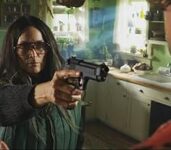Die Alone (2024) Official Trailer
June 2, 2025
Die Alone (2024) – Movie Review
What does it mean to fight for your life when there’s no one left to fight for? Die Alone (2024) is not just a post-apocalyptic thriller — it’s a raw, emotionally charged survival story wrapped in haunting loneliness, unexpected intimacy, and a slow-burning sense of dread. At its core, the film is about what remains when civilization collapses and all that’s left is memory, instinct, and the hope that you’re not truly alone.
Blending psychological tension with bursts of brutal action, Die Alone is a gripping journey through a world undone by infection — but even more so, by isolation.
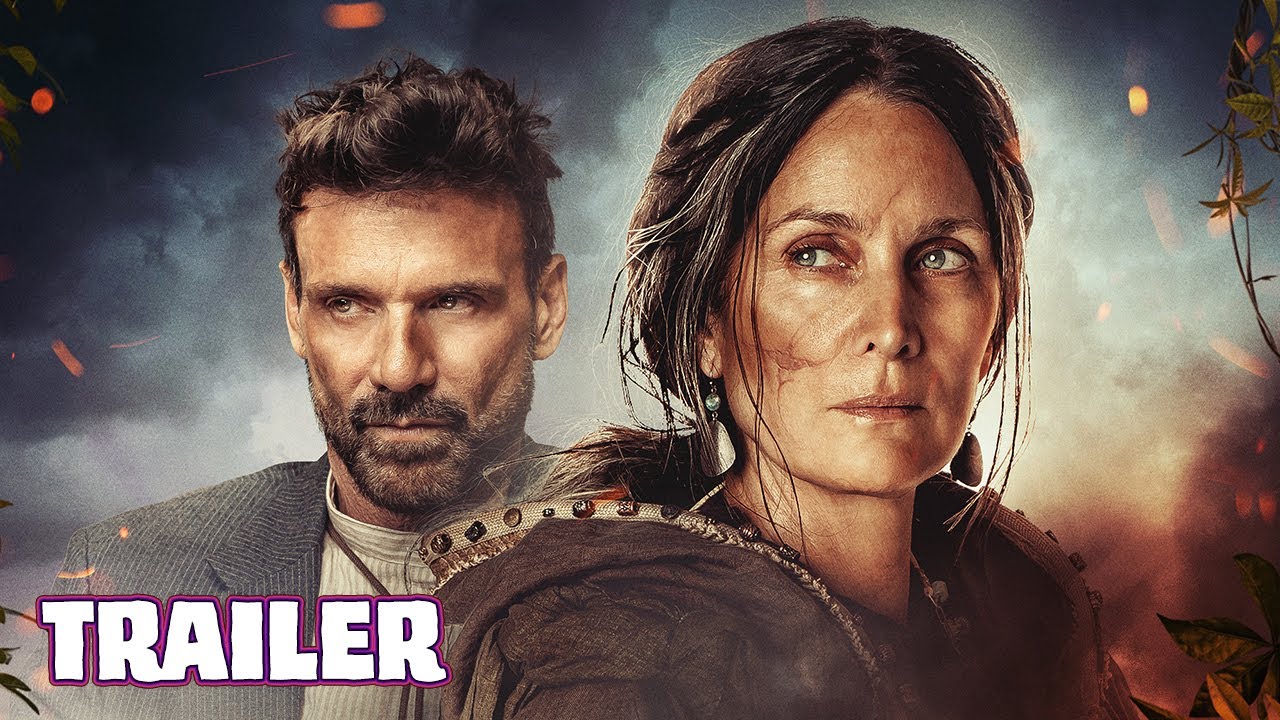
Plot Summary
Set in the near future, Die Alone follows Ava (played by Mary Elizabeth Winstead), a woman who has spent nearly a decade surviving alone after a deadly viral outbreak wiped out most of humanity. With no government, no power grid, and no confirmed signs of other survivors, Ava lives by strict routines — scavenging, hiding, and recording audio messages to a daughter who may or may not still be alive.
Her routine is violently disrupted when she encounters a wounded stranger, Lucas (played by Boyd Holbrook), collapsed near the forest edge. Torn between suspicion and compassion, Ava reluctantly takes him in — and as he heals, their uneasy alliance becomes a lifeline neither expected. But the virus has evolved. The infected are no longer mindless — they adapt, they coordinate… and they hunt.
As shadows close in, secrets unravel. Lucas isn’t who he claims to be, and Ava’s past may hold the key to the new wave of mutations. Together, they must make one last trek across a dying America to reach an old military outpost rumored to house the cure — or walk straight into the belly of death.

Artistic Execution
Directed by Karyn Kusama (Destroyer, The Invitation), Die Alone is a masterclass in atmospheric tension and minimalist world-building. Instead of grand explosions or overdone CGI, Kusama grounds the horror in emotional stillness — long, quiet takes of barren landscapes, a child’s drawing taped to a rusted fridge, or the rustle of wind against broken glass.
The cinematography by Greig Fraser is hauntingly beautiful. Dense forests, decaying cities, and fog-draped ruins are captured with a painter’s eye. Daylight feels cold and sterile. Nighttime feels infinite. The visuals don’t just tell a story — they mourn one.
Sound design also plays a crucial role. The silence is often louder than the chaos. Every creak, cough, and footstep is loaded with suspense, forcing the viewer to listen as if their life depends on it.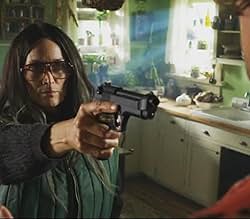
Performances
Mary Elizabeth Winstead gives a tour-de-force performance as Ava — hardened, hollowed, and yet still fiercely human. Her portrayal is both physical and deeply emotional, filled with the fatigue of someone who’s had to carry grief for too long. She speaks volumes in silence, and when she breaks — whether in fury or fear — it hits like a gut punch.
Boyd Holbrook adds subtle charisma and danger as Lucas. His charm is measured, his secrets well-buried. As their dynamic shifts from wary cooperation to emotional interdependence, the chemistry between Winstead and Holbrook becomes the film’s beating heart.
A late appearance by Lance Reddick (in one of his final screen roles) as a rogue scientist-turned-hermit adds philosophical weight and tragic perspective to the story, reminding us that survival doesn’t always mean living.
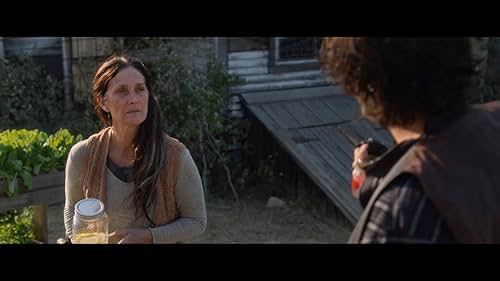
Emotional Impact
Die Alone thrives on its emotional undercurrent. It’s a story about guilt — the guilt of surviving when others didn’t, the guilt of choices made in desperation, the guilt of wanting something more when the world is dying. Ava’s trauma is never exploited; it’s embedded in every movement, every hesitation.
The relationship that blooms between Ava and Lucas is tender and fragile. It never feels forced or overly romanticized. Instead, it grows like a scar — painful, real, and deeply personal. When the final act hits, the emotional payoff is devastating.
Tone and Pacing
The pacing is deliberately measured. This is not a non-stop action thrill ride; it’s a slow build toward emotional eruption. Tension simmers, suspense tightens, and just when you think you can breathe — the film strikes. The tone is heavy with melancholy but layered with defiant hope, always teetering between ruin and redemption.
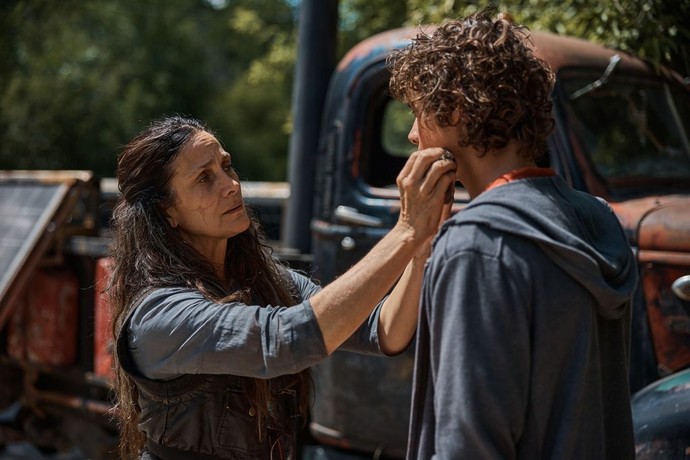
Final Verdict
Die Alone (2024) is a stunning, intimate apocalypse — not just about a collapsing world, but about two souls searching for meaning in the rubble. With stellar performances, arresting visuals, and a script that balances human emotion with existential horror, this film rises far above its genre.
It’s not about zombies. It’s not about viruses. It’s about how much of yourself you’re willing to give to another person when all you have left… is survival.
Rating: 9.1/10 – Quietly devastating, beautifully acted, and unforgettable. A rare gem in the post-apocalyptic genre.

